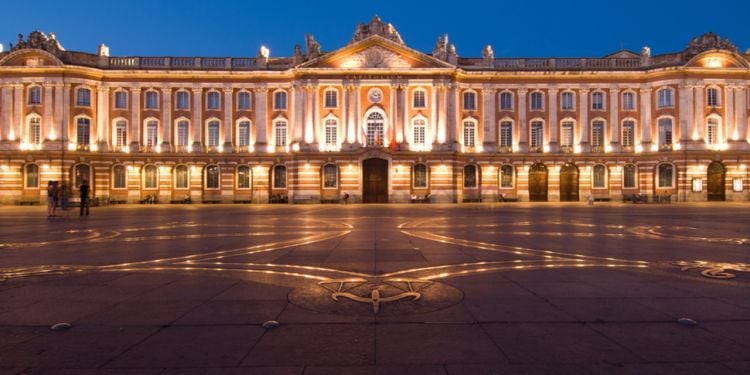Studying in Toulouse

Toulouse attracts students from all over the world, but has a unique appeal for science students thanks to its reputation as a hub of high-tech-oriented industries. With more than 100,000 students, the ‘Pink City', is the fourth largest student city in France. With a warm climate and a rich historical legacy, Toulouse is an attractive prospect for students, with a particular emphasis on aeronautics (as the cradle of Airbus) as well as IT, and space.
Public universities in France
Pursuing your studies in France's higher education system can proceed in two different ways. One is the so-called "Grandes écoles", which are expensive but extremely prestigious. To be admitted to these schools, students must pass a competitive examination after two years of preparatory classes. The second option would be to attend Public Universities, which offer very diverse and broad-based courses and degrees. Some public universities are internationally renowned for their courses and quality of education, providing excellent opportunities for research. Above all, enrolment fees are very affordable - an average of â¬250 per year. French universities operate according to credits acquired called European Credit System (ECTS). Free education in France is a common peculiarity, which explains the popularity of the country among international students.
The leading academic institutions of Toulouse
Université Paul Sabatier Toulouse 3
The Paul Sabatier 3 University is part of the prestigious group of the oldest universities in the world (including Oxford and La Sorbonne). As this university is very science-oriented, its motto is "Science in the heart". By science, the institution refers to sciences in their purest definition: health sciences (midwifery, physiotherapy), sports sciences (anatomy, physiology), and engineering sciences (physics, mathematics, computer science). Moreover, Paul Sabatier University regularly ranks between the 520-530th best universities in the world. Its "Earth and Marine science" program, ranks among the top 200 in the world.
The University also has a strong research program, with 600 researchers and 2,000 teacher-researchers. Nowadays, the researchers of Paul Sabatier University chiefly focus on 12 major research themes. The University Paul Sabatier displays several means of funding for its research programs. For instance, â of its budget is directly funded by companies, â by public funding agencies, and â financed by the European Community. Did you know that this establishment also offers a degree specialised in communication and management?
International students are welcome at Paul Sabatier University. However, even though some Doctorates or Masters programs are taught in English, bear in mind that the majority of courses are taught in French. If you don't have the required level of French, the university provides intensive French classes. As an international student, you either have the opportunity to study in France thanks to the Erasmus exchange program if you are a European national or through a partnership agreement with your university.
Find out more here.
Université Toulouse 1 Capitole
Toulouse 1 Capitole University has several courses specialised in law, economics, management, economic and social administration, information and computer communication, mathematics and applications, political science, and languages. According to QS 2019 top universities, the university's most outstanding programs are Economics and Econometrics.
International students completing an exchange program can choose their courses from an extensive list. Each degree is entitled to a certain number of ECTS that can be validated with your home university.
Another good news for international students: the university is currently upgrading its English-taught degrees! The association, ESN Toulouse, is in charge of welcoming and guiding international students during the year. Furthermore, international students can be granted an Eiffel Scholarship program. Refer to this page for more information.
Université de Toulouse 2, 'Le Mirail' Toulouse Jean Jaurès
Toulouse Jean Jaurès is a cross-disciplinary university with a wide range of programs: arts, literature, languages, human and social sciences, computer mathematics, economics, and management. We can count among its former student the TV host Hélène Jouant, while Montaigne and Rabelais, two notable French writers and philosophers of the Renaissance era, were welcomed there.
Good to know:
The university has set up an eco-campus with selective sorting, paper recycling, energy savings, and a purchase certification for paper coming from sustainably-managed forests.
Many courses are open to international students, thanks to the number of classes taught in English. Entry requirements may vary depending on whether the student is a European national or not.
Administrative formalities and paperwork
Students from one of the countries of the European Union or EFTA (European Free Trade Association), do not need a visa to study in France. On the other hand, for international students who are not from one of the concerned countries, a student visa is mandatory. Find out more information about student visas here. Note that if the study stay exceeds six months, a resident card will also be required.
Funding your studies in France
As an international student, you can either fund your studies by being granted a scholarship from your home country, or by being awarded a subvention from the French university you will attend. Specific organisations also provide some subsidies to those who do not have adequate financial resources. Check the full list on the France Diplomatie 'Finance your studies' section.
International students also have the right to work in France as long as they have social security health coverage and a residence permit if they do not come from the European Union.
Internships in France
Regulations regarding internships in France are the same for international students (whether they are European nationals or not) as for French students. If you are not a part of the European Union, your student visa will allow you to undertake an internship, but under restricted conditions.
Working in France after graduation
Students from the European Union wishing to continue their studies in France after graduation can stay in the French territories without any restrictions. For international students, some limited conditions apply, such as the amount of salary received, etc.
Student housing in Toulouse
The CROUS of Toulouse keeps about 28% of housing in university residences aside for its international students. Campus France is also a key player for international students looking for university accommodation.
On the other hand, international students who are more interested in flat-sharing (ideal for practising French, or English!) can look at websites like Adèle, Appartager, Loc service, and La carte des colocs, which can help you find accommodation that best suits your needs. Last but not least, you can rent a single bedroom at a French national house via websites like Chambre à louer.
The cost of living in Toulouse
Regarding housing, it takes between â¬130 and â¬500 per month for an apartment, depending on location. When it comes to food, Toulouse offers a wide range of U-restaurants. These are budget-friendly restaurants perfect for students on a budget. For instance, a meal can amount to only â¬3,25. Moreover, the CROUS has widened its offers thanks to partnerships with breweries, CROUS trucks, and La Pause, which delivers snacks to students near the campus. Students under 26 can benefit from a discount on all public transport (subway, bus, tram). The price amounts to â¬102 per year (if the student chooses an annual subscription), and â¬25 per year for a subscription at Vélô Toulouse, where bikes help students get around the city cheaply and efficiently.
As an international student in Toulouse, you will need a budget of about â¬800 per month. This monthly cost includes enrolment fees, school supplies, and other extra fees. Keep in mind, however, that you will also need to cover the cost of a compulsory social health cover. It is possible for international students under 28, studying for more than four months in France, to be covered by the French social health security for a special annual fee. International students benefiting from a scholarship will not have to pay for social security, as it will be granted by the scholarship.
Where to live as a student in Toulouse
Toulouse is a very vibrant and lively city for students! You can enjoy fun nights out around the neighbourhood of Carmes Saint-Étienne, or enjoy the St-Cyprien district for a more peaceful and calm village life. On the contrary, if you are looking for the most dynamic areas of Toulouse, living in the neighbourhood of St Aubin is an excellent choice for the hustle and bustle. For students on a budget, the St Michel district offers the lowest rent. Note that the Busca is full of university housing.
Leisure in Toulouse
Toulouse has many historical monuments worth visiting. From enjoying the city's museums to visiting the Cité de l'Espace and the Setmi, there is plenty to entertain! Wander along the banks of the Garonne, or stroll around the Canal du Midi, but do not forget to indulge in the gastronomy of France's south-west!









